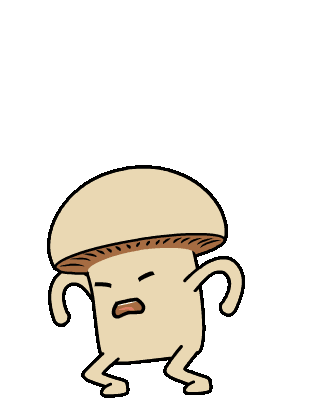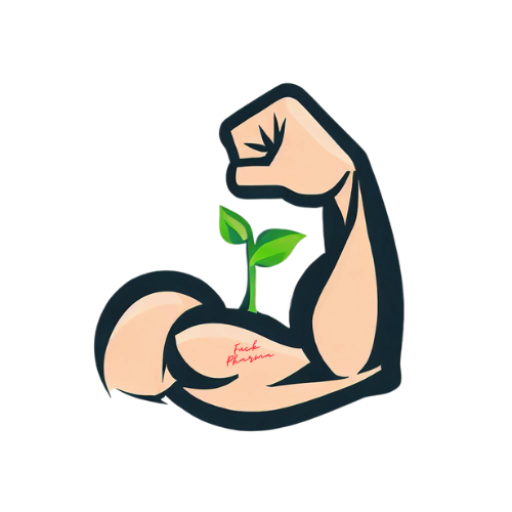
Importance of a healthy Skin and Muscles
“Healthy skin is a reflection of overall wellness”.

Why is your skin and muscles health important☀️
Your skin and muscle health are crucial for overall well-being because they play key roles in protecting your body, supporting movement, and maintaining overall health.
- Protection
- Temperature Regulation
- Movement & Strength
- Metabolism & Weight Management
- Healing & Immunity
Importance of having a good diet for Skin and Muscles health👨🦱
A good diet is essential for maintaining healthy skin and strong muscles. Nutrient-rich foods provide hydration, support collagen production, and protect the skin from damage, keeping it youthful and resilient. For muscles, a balanced diet fuels growth, repair, and recovery, improving strength and endurance. Protein, healthy fats, vitamins, and antioxidants play key roles in reducing inflammation, preventing premature aging, and enhancing overall wellness. Eating whole, unprocessed foods and staying hydrated ensures optimal skin elasticity and muscle function, promoting long-term health and vitality.
Here are some key Nutrients for your Skin and Muscle health:
Fatty Fish🐠
(Salmon, sardines, trout) – Rich in omega-3 fatty acids, essential for brain function and reducing mental decline.
Leafy Greens🥦
(Spinach, kale, broccoli) – High in antioxidants, vitamins, and folate, which support brain health and reduce inflammation.
Berries🍓
(Blueberries, strawberries, blackberries) – Packed with antioxidants that improve memory and protect against cognitive decline.
Nuts & Seeds🥜
(Walnuts, almonds, flaxseeds, chia seeds) – Provide vitamin E, healthy fats, and omega-3s, which enhance brain function.
Lean Proteins🥩
(Brown rice, quinoa, oats) – A steady source of energy, improving focus and concentration.
Avocados🥑
Packed with healthy fats for skin elasticity and glow
Sweet Potatoes & Carrots🥕
Packed with healthy fats for skin elasticity and glow
Greek Yogurt🍶
High in protein and probiotics for muscle recovery
Possible causes Of poor Skin health do to Emotions ⭐
The inability to safeguard oneself, whether emotionally, mentally, or physically, can lead to feelings of vulnerability and exposure. This often manifests as a deep sense of frustration, irritation, and anger, as though external forces are continuously intruding upon your peace and stability. It may feel like you’re constantly under attack or that the world around you is encroaching on your well-being, leaving you defenseless. In addition to this external pressure, you may also face experiences of disapproval, harsh criticism, or invalidation, either from others or even from within yourself. These negative judgments can create a cycle of self-doubt, sometimes escalating into feelings of self-hatred or a persistent belief that you are not enough.
This emotional turmoil may lead to the development of patterns of timidity and withdrawal, as a means of coping with the overwhelming feelings of insecurity. You may find yourself retreating from situations that feel unsafe or too demanding, choosing to avoid conflict or potential emotional harm at the cost of your own sense of engagement and self-expression. A deep-seated sense of inferiority and being undervalued can creep into your interactions, leaving you feeling like you’re not worthy of respect or recognition, and creating a sense of unease or discomfort with your own identity.
These feelings often lead to a powerful sense of disconnection or lack of belonging, as if you don’t fit in with the world around you or have no place where you truly belong. In response to this emotional isolation, you may unconsciously erect emotional or psychological barriers as a defense mechanism, trying to protect yourself from further pain or rejection. While these walls may seem to offer safety, they also create a barrier between you and authentic connections, trapping you in a cycle of isolation and unprocessed emotions that are never fully addressed or healed.
Remedy
- Strengthen Boundaries
- Practice Self-Compassion
- Cultivate Emotional Resilience
- Address Feelings of Inferiority
- Find Your Tribe
- Practice Assertiveness
- Self-Care & Healing Practices
Possible causes Of poor Muscles health do to Emotions ⭐
Stress, anxiety, and an overwhelming sense of being out of control can often manifest as an intense attachment to negative emotions such as fear, anger, and sadness. These emotions become deeply ingrained, affecting your thoughts and actions on a daily basis. In an effort to cope, there may be a strong compulsion to exert control over every aspect of your life, believing that if you can micromanage every detail, you can prevent further emotional turmoil. This need for control often leads to an overactive mindset, where you find yourself constantly overthinking, analyzing, and stressing over every decision or potential outcome. The resulting tension can make it difficult to relax, as the mind remains preoccupied with trying to predict and control the future rather than embracing the emotions in the present moment and allowing them to flow through.
This pattern of constant striving for control can often result in a workaholic mentality, where your focus shifts to productivity and achievement as a way to escape emotional discomfort. The weight of responsibilities, both personal and professional, may feel unbearable at times, with the pressure to perform and meet expectations taking precedence over self-care. As a result, you may neglect your physical and emotional well-being, continually pushing yourself to meet deadlines or goals without taking the necessary time to rest or process your emotions.
In addition to this, there may be significant challenges in expressing your genuine feelings to others. Fear of rejection, judgment, or not being accepted for who you truly are can cause you to withhold your emotions or mask them behind a facade. The fear of vulnerability can create a barrier, making it difficult to share your true thoughts and feelings with those around you, even when you desire connection. This emotional repression can lead to a sense of isolation, as you bottle up emotions like sadness, anger, or frustration, leaving you feeling disconnected and misunderstood.
Remedy
- Practice Mindfulness and Emotional Awareness
- Develop Healthy Emotional Expression
- Manage the Need for Control
- Prioritize Self-Care and Set Boundaries
- Break the Overthinking Cycle
- Practice Vulnerability
- ncorporate Stress-Relief Activities
Why taking supplements can help have a Skin and Muscles💪
Supplements can support brain and mental health by providing essential nutrients that may be lacking in a regular diet. Key supplements like omega-3 fatty acids improve cognitive function and reduce inflammation, while B vitamins help regulate mood and reduce stress. Magnesium and vitamin D play a role in lowering anxiety and depression, and antioxidants like vitamin C and E protect brain cells from damage. Additionally, probiotics support gut health, which is closely linked to mental well-being. While supplements can be beneficial, they should complement a healthy diet and lifestyle rather than replace them.
Best supplements for your Skin and Muscles health (buy links included)
Skin
Improves skin elasticity, reduces wrinkles, and strengthens skin structure.
Acts as an antioxidant to prevent premature aging and dryness.
Aids in wound healing and controls acne by regulating oil production.
Keeps skin hydrated and reduces inflammation.
Muscles
Supports muscle growth, repair, and recovery.
BCAAs (Branched-Chain Amino Acids)
Enhances muscle strength and reduces soreness.
Increases muscle power, endurance, and performance.
Helps with muscle relaxation, reducing cramps and fatigue.
Signs of poor Bones Health
Dry, flaky skin
Lack of hydration or essential nutrients.
Slow wound healing
Could indicate poor circulation or low collagen.
Frequent breakouts
May be due to hormonal imbalances or poor diet.
Weakness or fatigue
Muscles tire quickly, even with light activity.
Frequent cramps
Possible dehydration or electrolyte imbalance.
Loss of muscle mass
Muscle shrinking due to inactivity or poor diet.
Joint pain or stiffness
Weak muscles don’t support joints well.
Slow recovery from exercise
Muscles take longer to heal after workouts.
Articles

Selling sickness: the pharmaceutical industry and disease mongering
A lot of money can be made from healthy people who believe they are sick. Pharmaceutical companies sponsor diseases and promote them to prescribers and consumers. Ray Moynihan, Iona Heath, and David Henry give examples of “disease mongering” and suggest how to prevent the growth of this practice

The Ugly Truth About The Education System You Were Never Told
“Education is not the learning of facts, but the training of minds to think .” Albert Einstein Ever since I’ve gotten deeper into spirituality, meditation and metaphysics, a lot of my views on a variety of subjects have changed dramatically.

How the American Diet Has Been Weaponized for Mass Destruction
Almost half of all American adults have one or more chronic illnesses due to poor diet. And over 45% of US deaths from heart disease, stroke, or diabetes are linked to diet.

The Illusion of Fame — The Music Industry’s Dark Secrets
The music industry often seems like a world full of glamour, fame, and success. However, behind this glittering image lies a darker reality that many don’t see. The dark side of the music industry includes various issues that affect artists, from exploitation to mental health struggles. This blog will explore these hidden aspects and help you understand the challenges artists face.
